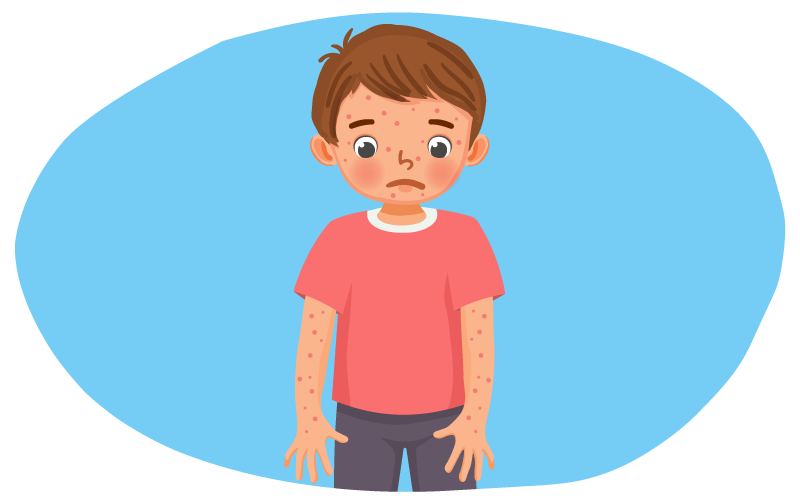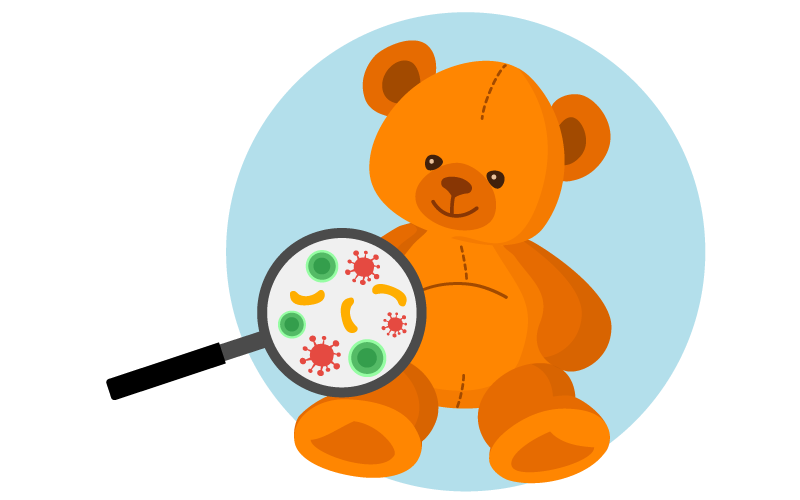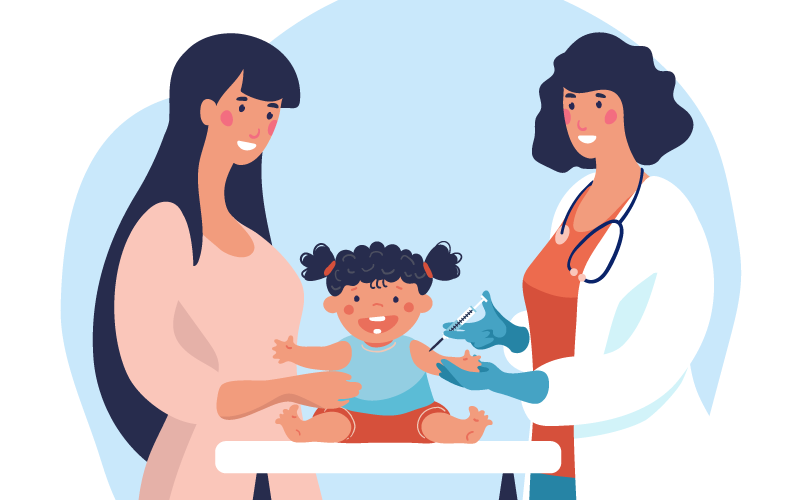Chickenpox (varicella)
What is chickenpox?
Chickenpox is an extremely common viral infection, also known as varicella. It causes generally mild symptoms and is best known for causing an itchy blister-like rash on the skin. It will affect most children who are not vaccinated before they are 10 years old. After recovery from chickenpox, the virus stays dormant (without symptoms) in the body and can frequently cause shingles later in life.
Some EU/EEA countries include a chickenpox vaccine in their national vaccination schedules.
At a glance: Chickenpox in Europe
- Disease of the skin caused by a virus
- Chickenpox spreads through the air or through contaminated surfaces
- It is estimated that there are millions of cases among children every year
- 90% of chickenpox cases in Europe affect children/teenagers under 15.
- Chickenpox can be prevented by getting vaccinated.

What are the symptoms of chickenpox?
The symptoms of a chickenpox infection are very recognisable due to the rash it causes. All skin symptoms may be present at the same time. The palms of the hands and soles of the feet are generally spared. Once infected, people will progress through a series of symptoms:
- Fever
- Tiredness
- Headache
- Stomach ache
- Skin rash
- Skin bumps filled with fluid
- Scabs caused by the blisters breaking
- Blotchy skin
- Crusty spots
- Skin scars.
What are the complications of chickenpox?
Chickenpox is most common among children and generally clears up by itself. However, it can cause more serious symptoms and complications in adults, particularly among pregnant people and people with compromised immune systems. Complications are very rare but can include:
- Bacterial infection of the skin or blood.
- Pneumonia (infection and inflammation of the lungs)
- Problems with blood clotting
- Liver problems
- Encephalitis (swelling and inflammation of the brain)
- Cerebellitis (inflammatory syndrome that causes brain disfunction)
How is chickenpox spread?
The virus that causes chickenpox is highly contagious, with 96% of people who are not immune through vaccination or previous infection becoming infected following exposure. Chickenpox spreads through physical contact with or breathing in air near an infected person, or through surfaces an infected person has touched.

Who is at risk of chickenpox?
Anyone can develop a chickenpox infection at any age although it is most common among unvaccinated children under 10 years of age.
Chickenpox poses a greater risk to pregnant people as they are more likely to develop severe disease and complications as a result of infection. It can also increase the risk of miscarriage and spread to their unborn child – a condition known as ‘congenital varicella.’ Congenital varicella is rare but can cause severe, lifelong physical and learning disabilities.

How can chickenpox be prevented?
Vaccination is the most effective way to prevent chickenpox. The chickenpox vaccine is part of the childhood vaccination schedule in some EU/EEA member states.
Avoiding contact with people who have chickenpox or shingles (which is caused by the same virus) can reduce the risk of contracting the virus. People with chickenpox can already spread it in the days before they develop the typical rash, making avoiding people who are sick more difficult.
How is chickenpox treated?
As chickenpox usually clears up by itself, no specific treatment is needed as people recover on their own. Over the counter medications to reduce fever, or ointments to reduce itching from the rash can be used to make people more comfortable. It is recommended to avoid scratching skin lesions to prevent scarring.
Children/teenagers younger than 18 years old should never be given aspirin when they have chickenpox as this can cause a dangerous condition called Reye syndrome.
